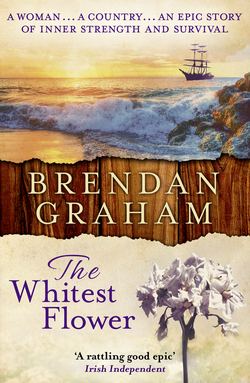Читать книгу The Whitest Flower - Brendan Graham - Страница 20
11
ОглавлениеShe nestled in behind Michael, sliding her right hand up over the white nape of his neck, beneath the thick black tangle of his hair, letting it rest there. He was asleep.
Now, she had seen to all of them.
She and Michael would talk again in the morning about the Famine and going to America. Now, she needed time to work things out in her own head – to devise her salvation plan for them.
If, as she foresaw, things were only going to get worse in Ireland, should they just wait here, accepting whatever Providence – and Pakenham – doled out to them? Much depended on whether the blight returned. If it did, then their fate, along with that of half the population of the country, would be sealed.
Of course, it was possible that Her Majesty’s ministers in London had drawn up plans to deal with such a disaster … But instinct and the lessons of history told her that Ireland and its problems were low on the list of priorities where Queen Victoria and her Government were concerned.
To survive they would have to scrimp and scrape. They must save whatever pennies they could. She was glad they had not gone to Castlebar. Instead, she would go there after the Christmas to sell her silver hairbrush, the one the Máistir had given her. It was no sin, given the circumstances, and her dear mother Cáit in heaven above would forgive her. Anyhow, wasn’t it only vanity for herself and her red-haired daughters to be having such fine, silky-brushed hair, and people hungry.
Michael, too, could sell his fiddle, although she would hate to see it go. She loved it when he played for her.
Its music lifted her, mellowed her heart when she was troubled. Music was the people’s freedom. To sell the fiddle, she decided, would be like selling a birthright.
It would be more than the act itself. It would be an admission of defeat.
She returned to her plan.
Once the baby was born and a bit hardy, she would find work, even if it meant walking all the way to Westport or Castlebar. She’d have to find one of the younger women to take the baby and nurse it for her.
Michael, she thought, would have to find some other place on the mountain, as well as the one discovered by Beecham, on which to plant potatoes. If luck was with them, and the potato harvest was good, they could sell some of the excess by this time next year.
Before Christmas twelve-months, all going well, they should be ready.
There, in the dark of her cabin, as the turf fire slowly died down to a dull glow, Ellen Rua O’Malley resolved that she, Michael, and their family, would not see out another Christmas in Ireland.
It saddened her greatly to think that their fire would be forever gone from the valley. Knowing that once they left, they too would be extinguished from the land not only of their own birth but of their fathers’ fathers’ birth – and even back beyond then.
Emigration was a death. A double death. It was a death to the one who left, and a death to the ones who stayed behind. Small wonder that the people held wakes for those leaving – the American Wakes, they called them – to keen departing loved ones, to mourn their being torn away from life as they knew it, unlikely ever to return.
In the still of the night the tears welled up in her eyes. She withdrew her hand from Michael’s head and wiped them away. She must not weaken now. She had been given gifts to overcome all that lay ahead of them. Gifts of knowledge;
of dream; of visitations; of wonder. She must be strong, use her gifts. Else she might lose them.
Somehow the fire in their cabin would be kept alight – she would see to that.
But go they would.
Go they must.
Rachaidís go Meiriceá They would go to America.
